Strom R3 is India's cheapest electric car - would it work though?
It's a three-wheeler in reverse
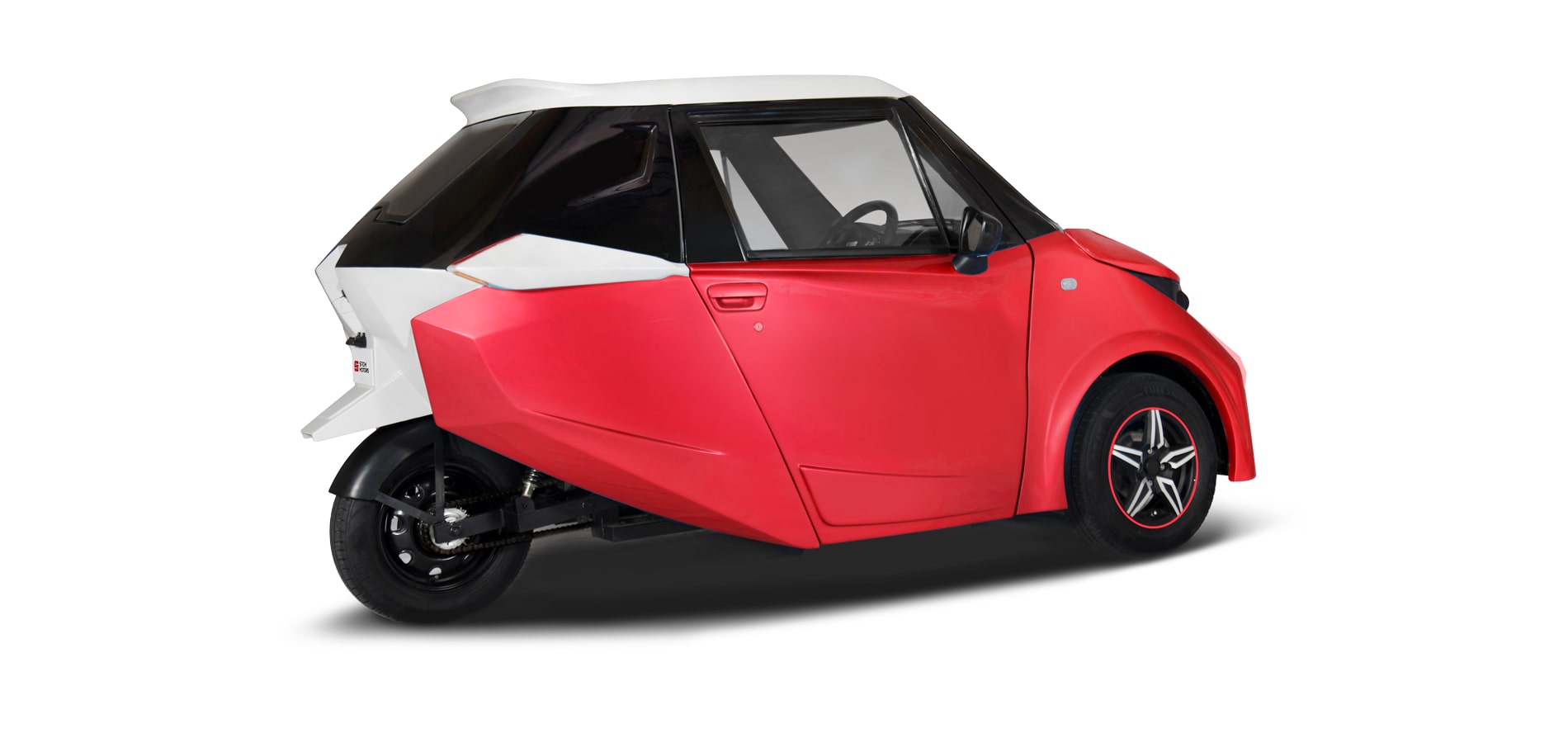
When it comes to electric vehicles, there are various questions that an early adopter might seek answers for. Range anxiety, charging infrastructure and affordability being right up there. While answering these doubts, a made-in-India electric car succeeds in most but probably ends up adding more to users’ dilemma.
Strom R3 is an entry-level compact electric car designed for urban cities like Mumbai, Delhi and Bangalore where weaving through dense traffic and finding a parking adds to the misery. And while the final retail price of the car has not been unveiled yet, the car is is available to be pre-booked for Rs. 10,000.
It is expected that the compact two-door car could be priced under Rs. 500,000 making it the cheapest electric car in India beating Tata Nexon EV which was to date the most affordable option when it came to electric cars in India.
- EVs explained: everything you need to know about electric vehicles
- Switch Delhi campaign aims to promote EV adoption - here's what we know
The Strom R3 has an interesting design, to say the least. It comes with a muscular bumper upfront, dual-tone finish, LED lights and even has a sunroof. This is a three-wheeled car with two wheels at the front and one at the rear. In other words, it could just be an auto-rickshaw designed backwards.
Of course, there are some benefits from this design, none more obvious than the fact that drivers of the Strom R3 would never be able to sneak into traffic the way the auto drivers are habituated of doing.
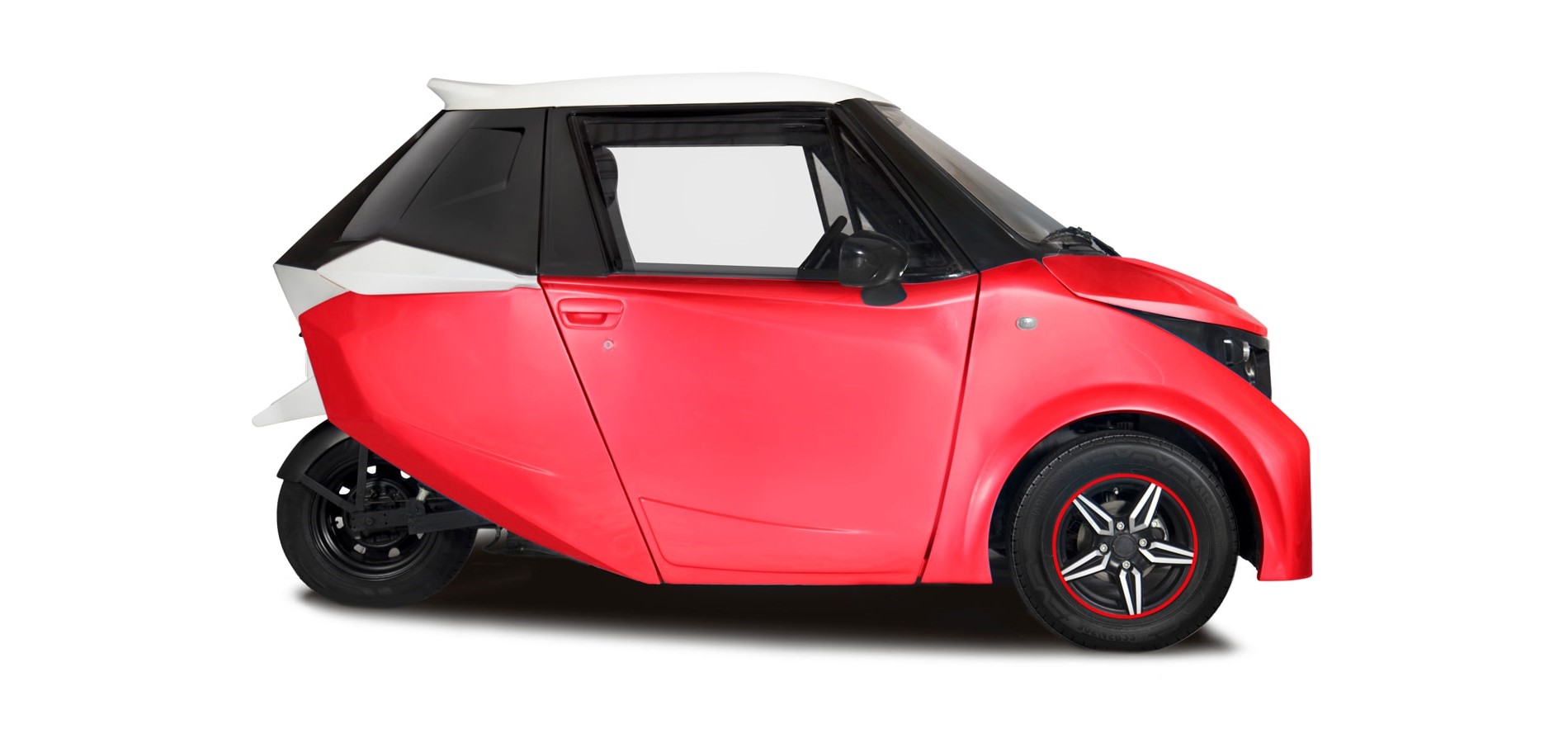
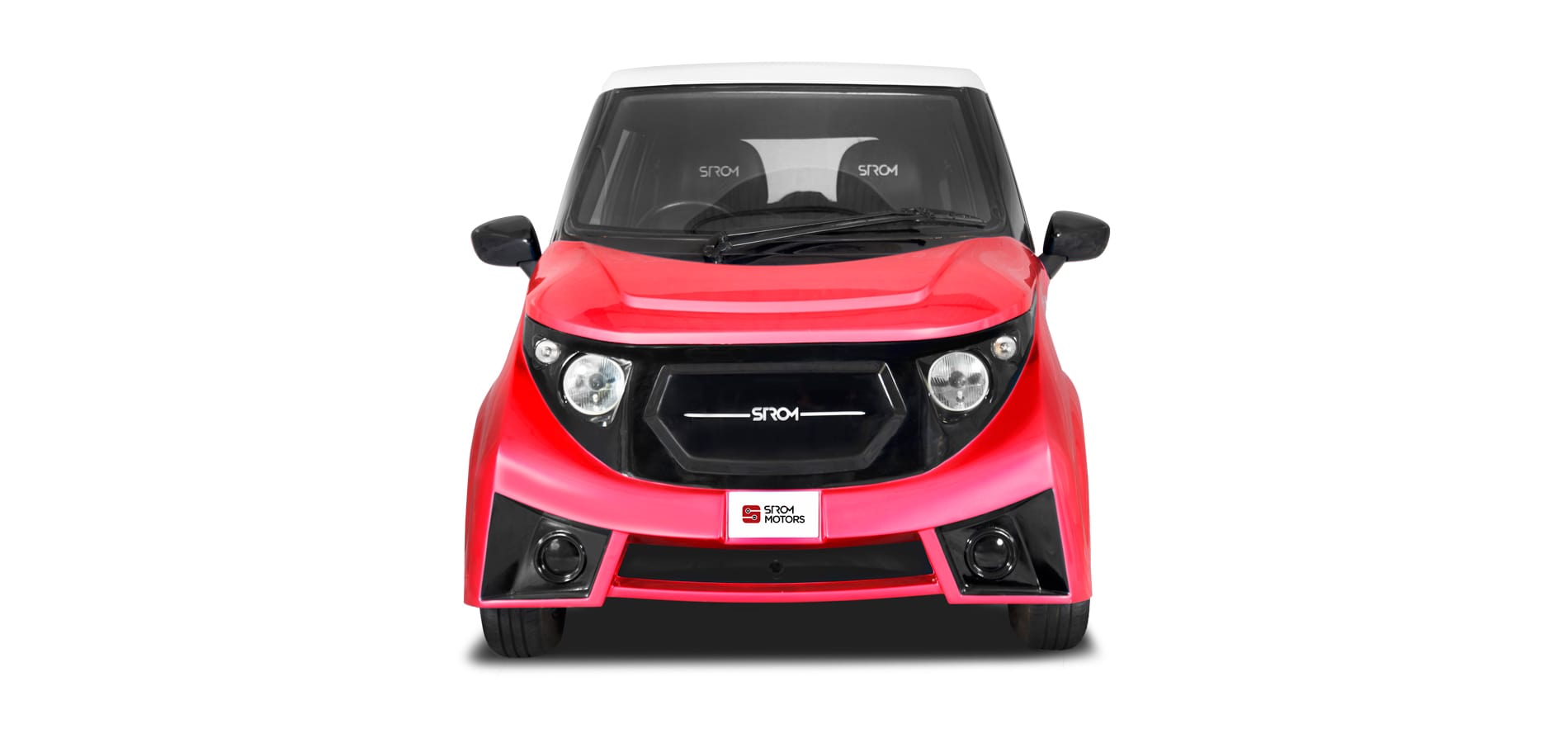
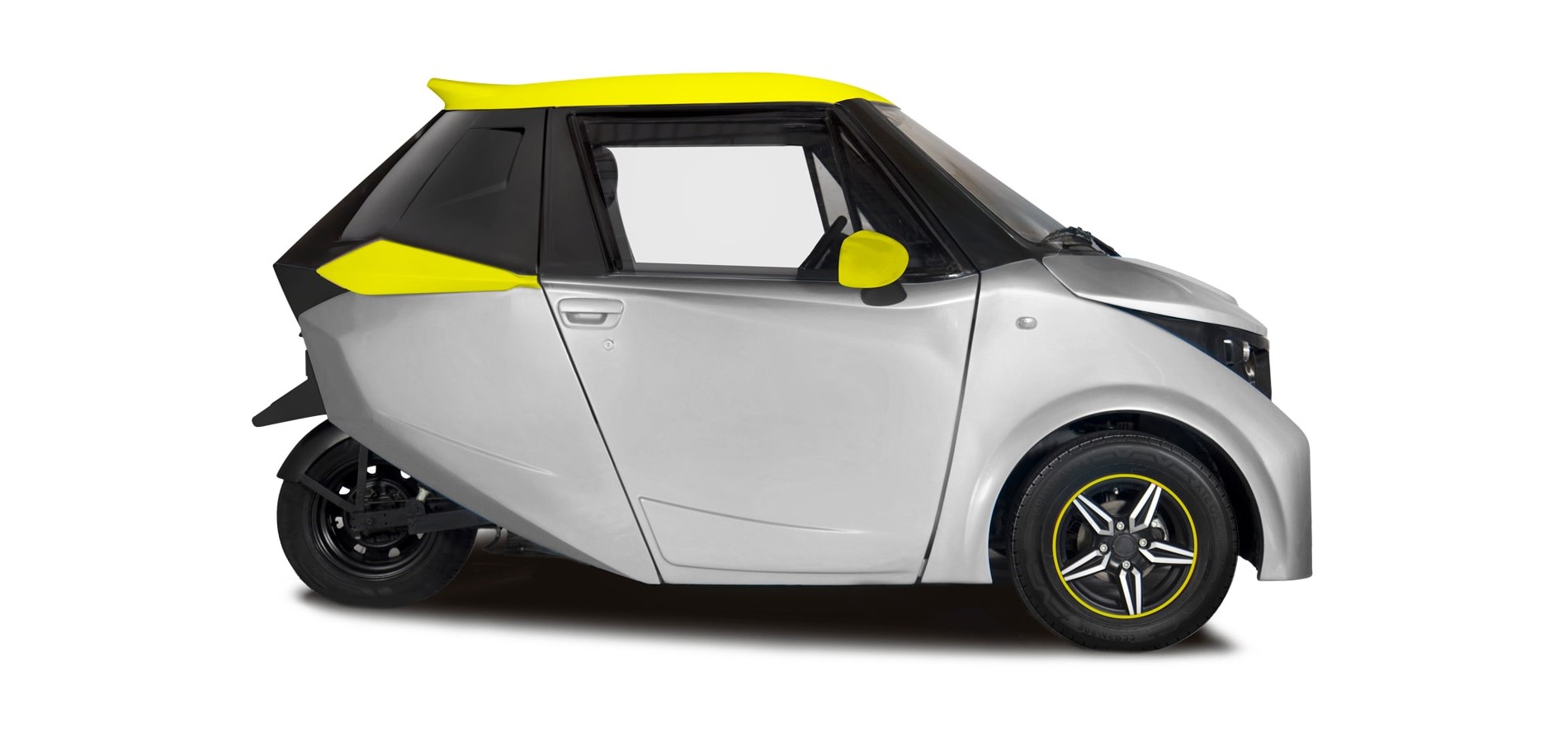
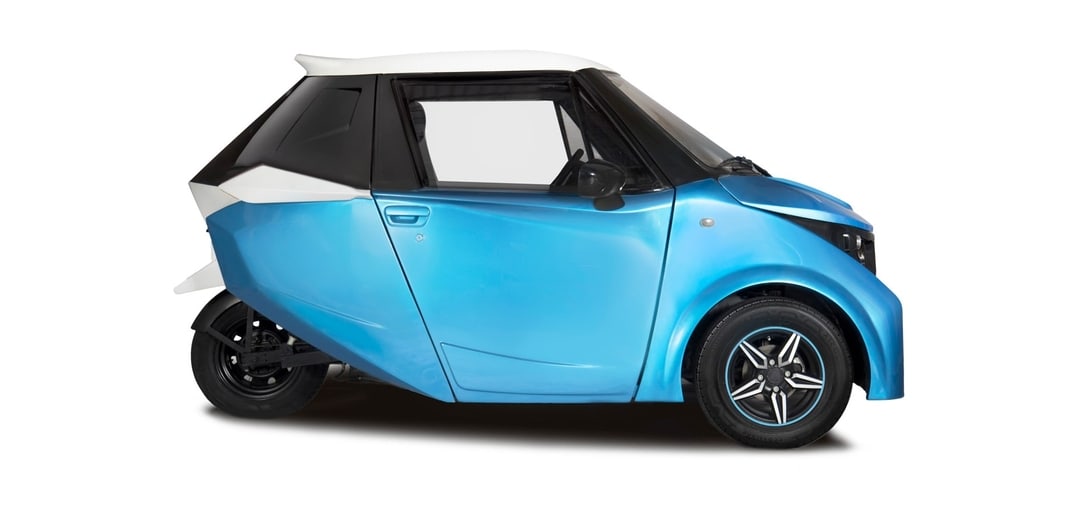
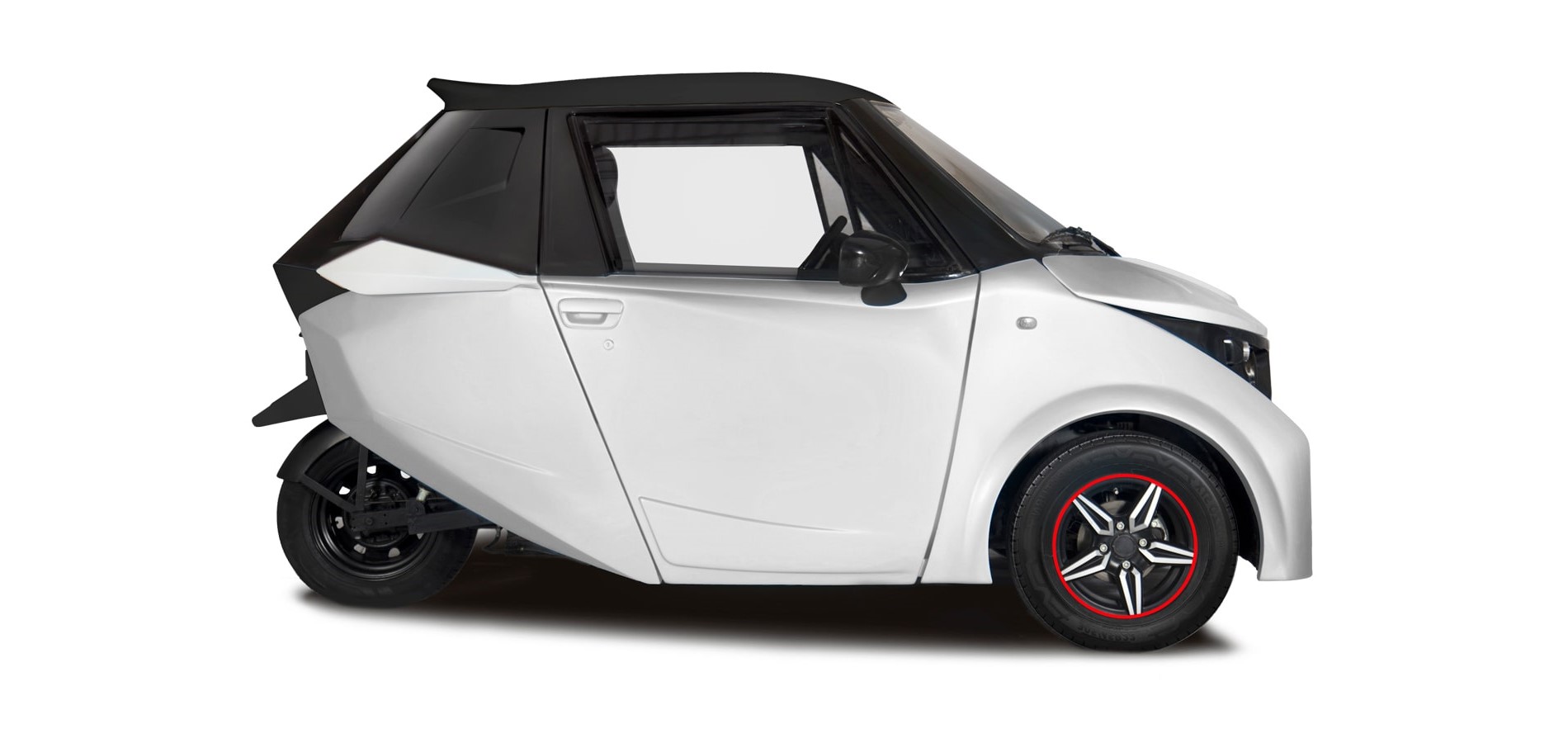
Strom R3 EV features
Even though the Strom R3 could be pegged at the budget end of the price range for electric cars, it still has a load of features on offer. While space in this compact car is like gold dust, it has a 7-inch infotainment system vertically stacked like the one we see in the Tesla. Who needs seating comfort if we can sing along?
This infotainment system comes with 4G connectivity. IoT-enabled Continuous Monitoring System, which can be controlled using your voice or even using gestures, has 20GB onboard for music storage and even offers turn-by-turn voice navigation.
Get daily insight, inspiration and deals in your inbox
Sign up for breaking news, reviews, opinion, top tech deals, and more.
The R3 may offer a couple of seating arrangements - two captain seats or a single bench seat for 3. An electric motor that produces 20bhp and 90Nm of torque powers the car. It comes equipped with a lithium-ion battery that takes 3 hours to charge 100% and can offer a 200Kms range once fully charged with a top speed of up to 80kmph
Interestingly enough this three-wheeled car has a regenerative braking system and offers 3 driving modes – Eco, Normal and Sports. The company claims that this car has a capacity of carrying 400 litres of luggage at a time with 300-litres at the rear and 100-litres at the front.
Is it affordable yet practical?
While the homegrown Strom motors have made bold claims about the car and we hope that most of them are true, however, its design may garner extreme reactions.
Be it the three-wheeled design that looks peculiar or the seating limitation, you may find people forced to compromise at various levels. The car is expected to retail at a price of around Rs. 5 lakh where you can buy a decent IC engine car that has a seating capacity of four people, decent luggage space, no range anxiety, has four wheels and has looks that are way more acceptable than the R3.
To date, electric cars in India are mostly priced in the premium segment, with the exception of Tata Nexon that is available around Rs. 10 lakh based on your location. We recently saw MG launch its new electric car and Ather introduced its electric scooter. Both priced at a premium and in no way available to the segment, whose shift towards sustainability would be critical for India's own future.
In a country like India, users of Tesla may still be occasional. What is the need of the hour is an electrified Tata Nano. We need a no-compromise vehicle with a design that is both practical and makes sense and doesn’t demand premium pricing just because it is an electric vehicle.
While the Indian government has set aggressive targets to ensure faster EV adoption and has been supported by state governments as well, electric vehicles in India will remain a distant dream.
Get up close with consumer tech news that you can use, latest reviews and buying guides. Follow TechRadar India on Twitter, Facebook and Instagram!
Jitendra has been working in the Internet Industry for the last 7 years now and has written about a wide range of topics including gadgets, smartphones, reviews, games, software, apps, deep tech, AI, and consumer electronics.
